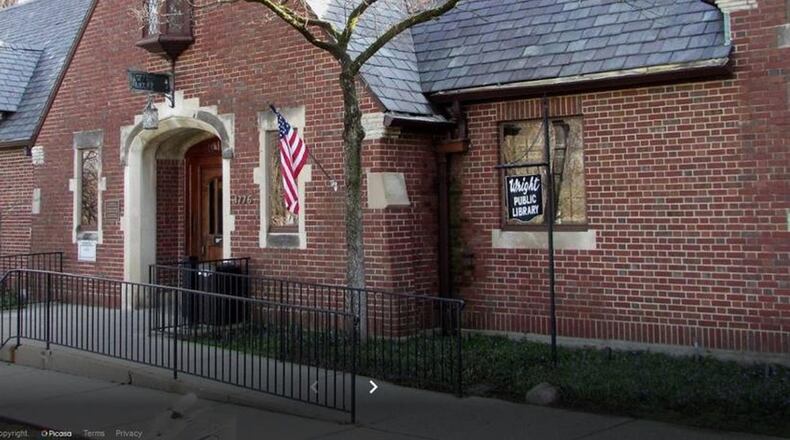MORE: Ohio libraries fighting publisher limits on digital content, eBooks
If passed, the levy would cost property owners about $52 annually per $100,000 of assessed home value. The levy would generate $474,307 annually for the library.
Officials said the library — which has not had new tax revenue since 2009 — has cut costs, put off building maintenance, reduced staffing and sought private donations.
Director Kristi Hale says that property taxes to support Wright Library constitute 1.4% of Oakwood property owners’ total tax bill. Oakwood taxpayers do not support other library districts.
The levy would fund both long-term operations and essential repairs and improvements to the building, phased over time, and within the current footprint, according to Hale.
“Along with seeking tax support, the library is committed to raising private dollars for facility needs,” Hale said. “Philanthropy will be an important part of this process. Securing private grant monies along with state and local tax dollars is key to moving forward affordably.”
MORE: Oakwood library earns four-star rating, seeks levy passage
Costs of passing the levy and bringing in new funding was broached at the open forum discussions, as with any ballot initiative seeking new money, residents wanted to know if this levy will be cost effective.
Wright Library’s expenditures are expected to exceed revenues this year, and officials said they have put together a plan that will make every penny count.
“Starting in 2008, state funding to public libraries was cut,” Fulford said. “Back then, we received about $1.5 million, we’ve rebounded now to about $1.2 million. Levy funds will be used for operations as well as essential infrastructure repairs and replacements and some modest updates, phased over time without increasing the building’s footprint, which would improve comfort and usability for Oakwood’s library users.”
Research has also revealed that residents want the library to make its services more accessible to the elderly and disabled, as well as, make updates to its historic building, but to stay within the footprint of the current building, according to library officials.
MORE: Oakwood mayor delivers State of the City address: ‘Washington, D.C., should follow our example’
“We have developed a long-range facility plan that will allow the library to continue the service that Oakwood expects,” Hale said. “Unfortunately we need some additional revenue in order to keep the library strong.”
She added, “This is not your grandmother’s library with a bunch of shushing librarians. Libraries have evolved across the country and here in Oakwood, and we are as relevant as ever.”
Hale said the Oakwood facility, per capita, is one of the most used libraries in the country.
“We ranked 19th out of 1,251 libraries nationwide in usage,” she said.
EARLY VOTING
Voters who want to get their ballots in before primary Election Day on March 17 can vote absentee by mail or in person at their county board of elections offices.
The deadline to request absentee mail ballots is three days before the election, or March 14. Absentee ballots must be signed. Absentee ballots that are mailed must be postmarked by the day before the election to be counted, or they can be returned in-person at the county board of elections before polls close at 7:30 p.m. on Election Day. (Do not take the ballot to a polling place.)
Early voting hours are the same in all counties:
‒ 8 a.m. to 7 p.m. from Monday, March 9, to Friday, March 13
‒ 8 a.m. to 4 p.m. Saturday, March 14
‒ 1 to 5 p.m. Sunday, March 15
‒ 8 a.m. to 2 p.m. Monday, March 16
About the Author
